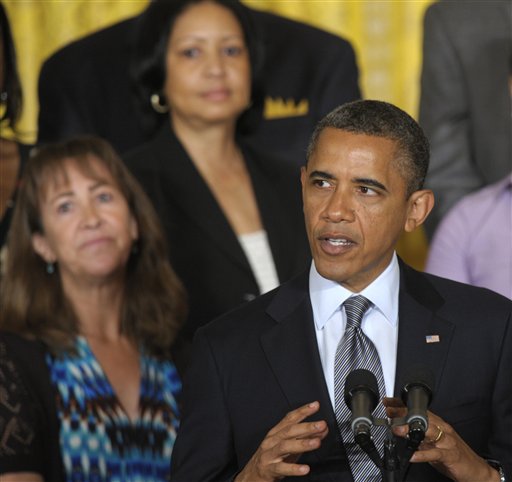WASHINGTON — An election-year tax faceoff between Democrats and Republicans in the GOP-controlled House is heading toward a predictable outcome Wednesday.
Republicans are poised to pass a bill to renew a full slate of Bush-era tax cuts for every working American. Democrats are countering with a doomed plan that would extend the tax cuts for all but the highest-earning Americans.
The dueling votes are more about political messaging three months before Election Day than a genuine attempt to resolve longstanding differences over taxes on higher-bracket earners.
The impasse threatens a fiscal stalemate that could result in higher payroll deductions for every worker.
The Bush-era tax cuts — renewed in their entirety two years ago — expire again Dec. 31. Many economists believe allowing tax rates to snap back to Clinton-era levels could drive the economy back into a recession, especially if automatic spending cuts designed as punishment for Washington’s failure to enact another deficit-cutting bargain strike at the same time.
But the common wisdom in Washington is that the outcome will be determined by whether President Barack Obama wins another term or Republican Mitt Romney boots Obama out of the White House.
The White House promised Tuesday that Obama would veto the GOP plan if it were sent to his desk. Obama instead supports a plan that passed the Democratic-controlled Senate last week by a near party-line 51-48 vote.
Republicans say Obama’s insistence on raising taxes on wealthier earners will sting small-business owners who create jobs. Democrats counter that the taxes only apply to the earnings of individuals exceeding $200,000 yearly and couples surpassing $250,000 — exempting 98 percent of taxpayers and all but the top 3.5 percent of taxpayers with business income.
“Why can’t you just do what you agree on and then continue the conversation on the rest?” House Minority Leader Nancy Pelosi, D-Calif., said.
Obama has made tax fairness — which includes tax increases on the rich — a big theme of his re-election campaign.
Likewise, Republicans have made resolute opposition to tax increases — especially as the economy is weak — a major element of their election-year platform.
The White House said that if the tax cuts were not continued, middle-class families would face average tax increases next year of $1,600. It also said the GOP bill would grant tax reductions averaging $160,000 to households where income exceeds $1 million annually.
The Democratic version also would boost the top tax rate paid by people who inherit estates to 55 percent, exempting the first $1 million in an estate’s value. The GOP measure would maintain today’s 35 percent top rate and would not tax the first $5.12 million of an estate’s value.
The GOP bill ignores some tax credits for low- and middle-income families that Democrats want to extend for college costs; for some low-income couples and large working families; and for families with children.
All were part of Obama’s 2009 economic stimulus bill. Democrats say those tax breaks were meant to be permanent, but Republicans say they were only a short-term response to the recession.
Send questions/comments to the editors.


